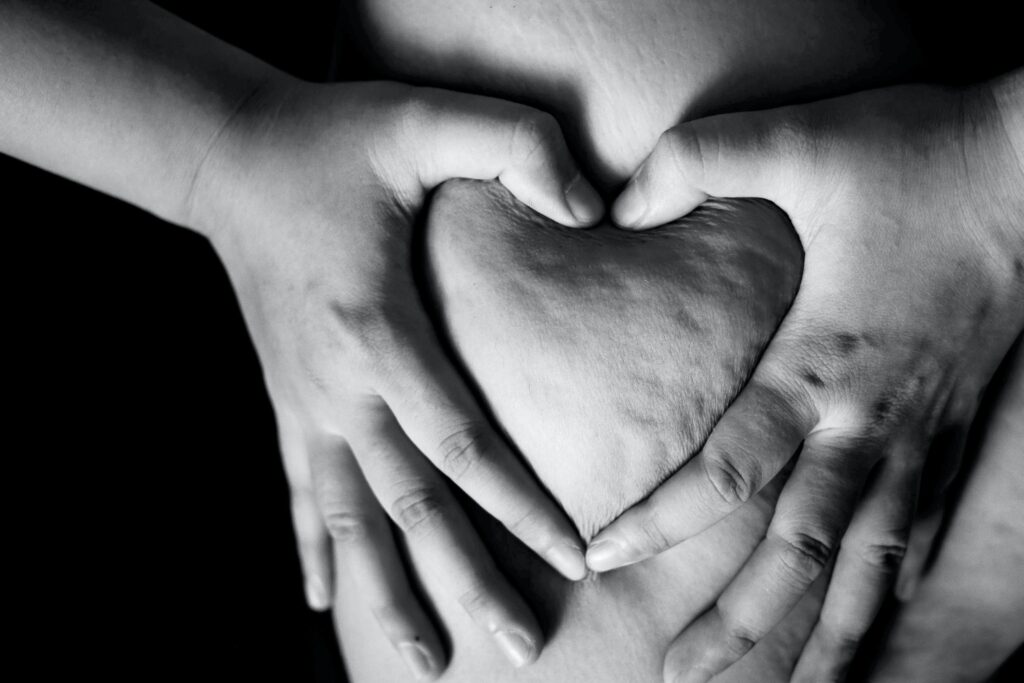
5 ways to eat more mindfully at Christmas
Mindful eating is a practice that involves connecting with and listening to our body’s hunger and fullness levels.
With the holiday season in full swing, the month of December is filled with excitement through Christmas parties and markets, mulled wine, and an array of delicious foods.
What can also come with this hectic time of year though is burnout, overwhelm, and a serious lack of routine! When we don’t have the energy or time to take care of ourselves, it’s tough to stay grounded amongst the chaos and cope with our internal and external stresses. And for many of us, we cope with life’s difficulties through food.
Using food as a coping mechanism is not “bad” like it’s reinforced to us in the media. It’s understandable that we do this as enjoyable, satisfying foods can act as a distraction. The questions to ask yourself instead are: how often do I use food as a coping mechanism? Do I feel mindful when I’m eating? Am I listening to my body when it comes to food?
If you’re someone who feels uncomfortably full, sluggish, or disconnected around this time of year then check out these tips for eating more mindfully (and in turn, connecting more with your mind and body). When we tune into what our body needs from us, we are able to reconnect with ourselves and cope better with stress.
1. Get in touch with your hunger cues
There are actually many signs of hunger before our stomach rumbles! Having thoughts about food, feeling anxious, and finding it hard to concentrate are all indicators that you’re feeling hungry so look out for these too. If you’ve dieted before or engaged in disordered eating, your hunger cues could be skewed so a good place to start with reconnecting with them is to ask yourself on a scale of 1-10 how hungry you feel before you eat followed by asking yourself on a scale of 1-10 how full you feel after you eat. Create a record on your phone for a few days and spend some time reflecting on what you’ve learned.
2. Let go of the ‘Christmas to New Year’ diet mentality
Each year, the same cycle of eating so called “bad” foods throughout Christmas followed by feelings of guilt and setting unrealistic diet goals from the 1st of January re-emerges. What’s found in the research is that this is a never-ending spiral that will keep you stuck in guilt, shame, and overeating/bingeing. At Talk Twenties, we’re giving you permission to enjoy all foods and move away from labelling foods as good or bad.
3. Enjoy the food you’re eating
Experience the delicious foods you eat this Christmas by using your different senses – smell, taste, touch, look. By tapping into all of the flavours, textures, and scents, you’re engaging in mindful eating which is one way to connect with those hunger cues that we talked about earlier. Mindful eating also brings us back to the here and now and takes us out of our thought consumed minds.
4. Normalise “treat” foods
Research has also shown us that placing certain foods on a pedestal by restricting ourselves from eating them unless it’s a special time of the year can actually lead to overeating or binge eating. Like anything in life, when we’re told we can’t have it we usually want it more. By exposing yourself to these kinds of foods more regularly, they become normalised and over time you may even find that they’re not as enjoyable or satisfying.
Sometimes, these foods can bring up fear within us because they’ve been labelled as “bad” or they are a food we typically binge on. Again, exposing yourself to them perhaps with the support of someone you trust is how you can change your relationship to them.
5. Cope with your feelings without food too
Are there any other coping mechanisms you have up your sleeve? Although uncomfortable feelings can seem daunting, they’re often not as scary as we think. According to Harvard brain scientist Dr. Jill Bolte Taylor, it’s possible to identify an emotion and allow it to dissolve in your body in just 90 seconds. That’s right, 90 seconds!
Feelings are temporary, and by allowing ourselves to feel them in the moment we avoid repressing them which can lead to low mood, depression, anxiety, and other mental health difficulties. Try breaking the habit of always using food as a way to cope by splashing your face with cold water, taking 10 deep breaths, or scribbling down all of your thoughts on a piece of paper and ripping it up.
Confidence Coach Victoria Niamh talks about her relationship with food and recovering from eating disorders in this podcast episode, check it out.
And lastly…
If you’re struggling with disordered eating or an eating disorder, just know that you’re not alone and support is available for you this Christmas. Beat Eating Disorders are the UK’s leading eating disorder charity and they offer a 1-1 web chat, helpline, workshops, support groups, and so much more.


